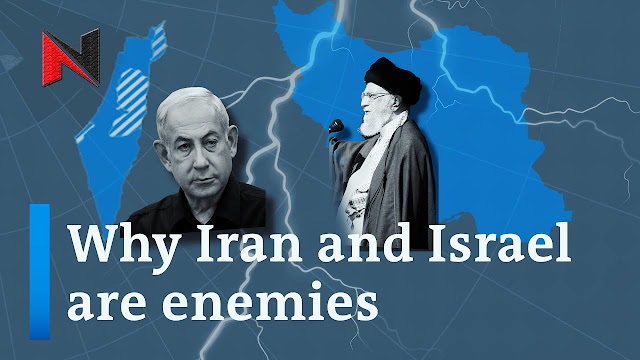Decoding the Complex Iran-Israel Conflict: Unraveling the Layers
In the tumultuous landscape of the Middle East, few conflicts are as enduring and multifaceted as the one between Iran and Israel. This simmering tension, often obscured by geopolitical intricacies, historical narratives, and proxy engagements, holds profound implications not only for the region but also for global stability.

Here, we dissect the layers of this intricate conflict to shed light on its origins, dynamics, and potential implications:
1. Historical Footprints:
In the annals of history, Iran and Israel once collaborated on an oil pipeline project in the 1970s, symbolizing a period of pragmatic engagement. However, the Iranian Revolution of 1979, with its vehement anti-Israel stance, reshaped the narrative, setting the stage for decades of animosity.
2. Geopolitical Chessboard:
Beyond religious or ethnic divides, the conflict is a chess game for regional dominance and influence. Iran, driven by a vision of Shiite leadership and anti-Western sentiment, sees Israel as a strategic obstacle. Conversely, Israel perceives Iran as an existential threat due to its support for proxy militias and alleged nuclear ambitions.
3. Proxy Warfare:
Proxy engagements epitomize the conflict's complexity. Iran's backing of militant groups like Hamas, Hezbollah, and the Houthis underscores its strategy of projecting power beyond its borders. Conversely, Israel's covert operations and airstrikes targeting Iranian proxies reflect its determination to curb Iran's regional influence.
4. Nuclear Ambiguity:
The specter of nuclear weapons adds a layer of urgency and volatility to the conflict. While Iran maintains its nuclear program is for peaceful purposes, suspicions linger, fueling international apprehension. Israel's own nuclear capabilities, though unofficially acknowledged, further heighten tensions.
5. Global Ramifications:
The Iran-Israel conflict reverberates globally, with major powers like the United States intricately involved. The U.S.'s steadfast support for Israel, underscored by military aid and diplomatic alliances, amplifies the stakes and complexities of the conflict, shaping broader regional dynamics.
In navigating this labyrinthine conflict, it becomes evident that there are no easy solutions or quick fixes. Resolving the Iran-Israel standoff demands nuanced diplomacy, regional cooperation, and a holistic understanding of the underlying grievances and aspirations driving each side.
As the world grapples with shifting power dynamics and escalating tensions, the Iran-Israel conflict serves as a stark reminder of the enduring complexities and consequences of geopolitical rivalries in the modern era.
In the pursuit of peace and stability, it is imperative for stakeholders to transcend rhetoric, confront deep-seated grievances, and forge pathways towards dialogue, cooperation, and mutual understanding. Only through concerted efforts can the shadows of conflict give way to the dawn of lasting reconciliation and coexistence in the Middle East and beyond.

True explanation
ReplyDelete